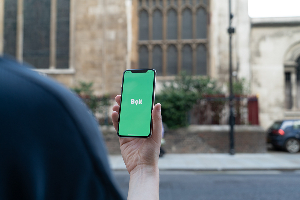 Bolt is a ride hailing service
Bolt is a ride hailing service
Ridesharing has transformed the way we commute. Whether it’s a late-night ride home, a quick trip to the mall, or the daily commute to work, services like Bolt have made transportation more convenient and accessible.
With advanced safety features, ridesharing offers peace of mind even when traveling late at night, after midnight. Yet, there's a troubling issue that threatens this sense of security: 'offline trips.'
What Are Offline Trips?
An offline trip in the context of ridesharing occurs when a driver and rider connect through the app, but then cancel the official ride to complete the transaction off the app. This deviation from the established process can happen for various reasons.
Sometimes, drivers claim they are experiencing app issues, while in other cases, riders might request an offline trip, saying they prefer to avoid the app's limitations. However, despite the seemingly harmless motivations, offline trips carry significant risks.
Safety Risks for Riders
Choosing an offline trip over an official one can jeopardize your safety. When you take rides through the Bolt app, you are protected by several critical safety features:
1. Real-time Tracking: You can follow your driver's location throughout the journey.
2. Share Your Journey: This feature allows you to share trip details with loved ones,
3. Driver Ratings: After each ride, you can rate your driver, ensuring that only the most reliable and professional drivers remain on the platform.
4. Customer Support: Bolt offers 24/7 customer support for any issues during your ride.
Taking a ride offline eliminates these safeguards. Without real-time tracking, you're traveling with a stranger without anyone knowing your location. If an incident occurs, there's no way to trace your journey, making it much harder for authorities or Bolt's safety team to investigate. Additionally, you forfeit the ability to rate your driver or access Bolt's support if something goes wrong.
Risks for Drivers
For drivers, offline trips might seem appealing as a quick way to make extra cash without involving the app's system. However, this practice has its dangers. Incidents that occur during offline trips are not covered by ride-hailing insurance or safety policies. If there's an accident or a dispute, drivers are left without any formal recourse.
From Bolt's perspective, conducting rides outside of the app is fraudulent. Engaging in this behavior can lead to severe consequences, including account suspension or permanent deactivation. In short, the risks for both riders and drivers far outweigh the potential benefits of offline trips.
Conclusion: Stick to the App
Ridesharing has revolutionized urban transportation, offering convenience and safety. However, the growing trend of offline trips poses a threat to these advantages. Both riders and drivers must understand that offline trips compromise their safety and violate the terms of service. The safest, most reliable way to use ridesharing is to stick with the official process and utilize the app's safety features.
Next time you're hailing a ride, remember the risks of offline trips and opt for the security and peace of mind that come with staying online. It's better to be safe than sorry.
It is high time that we understand that both riders and drivers risk their safety by taking offline trips. We should question ourselves – just to save a few cedis, is it really worth the risk?